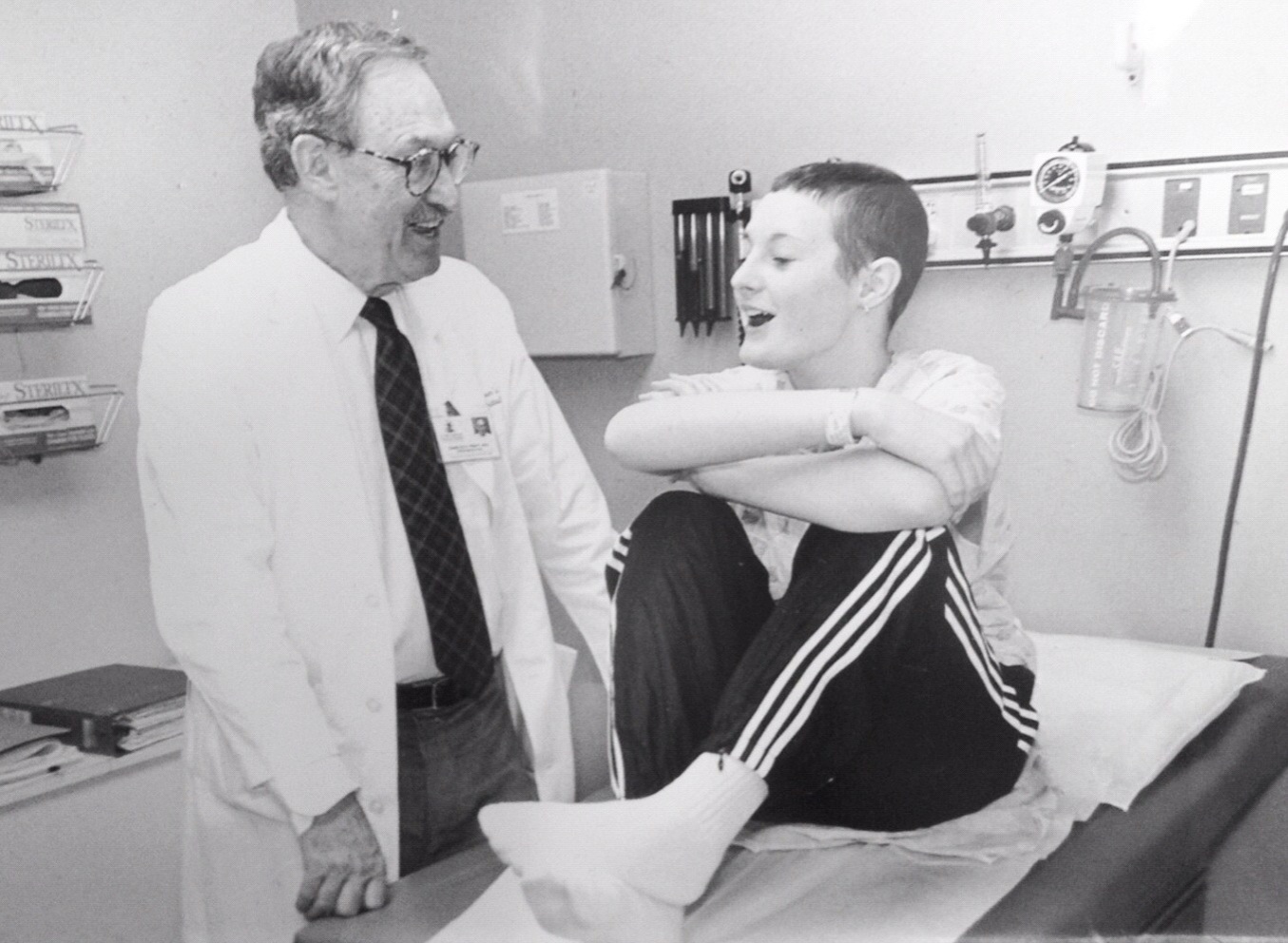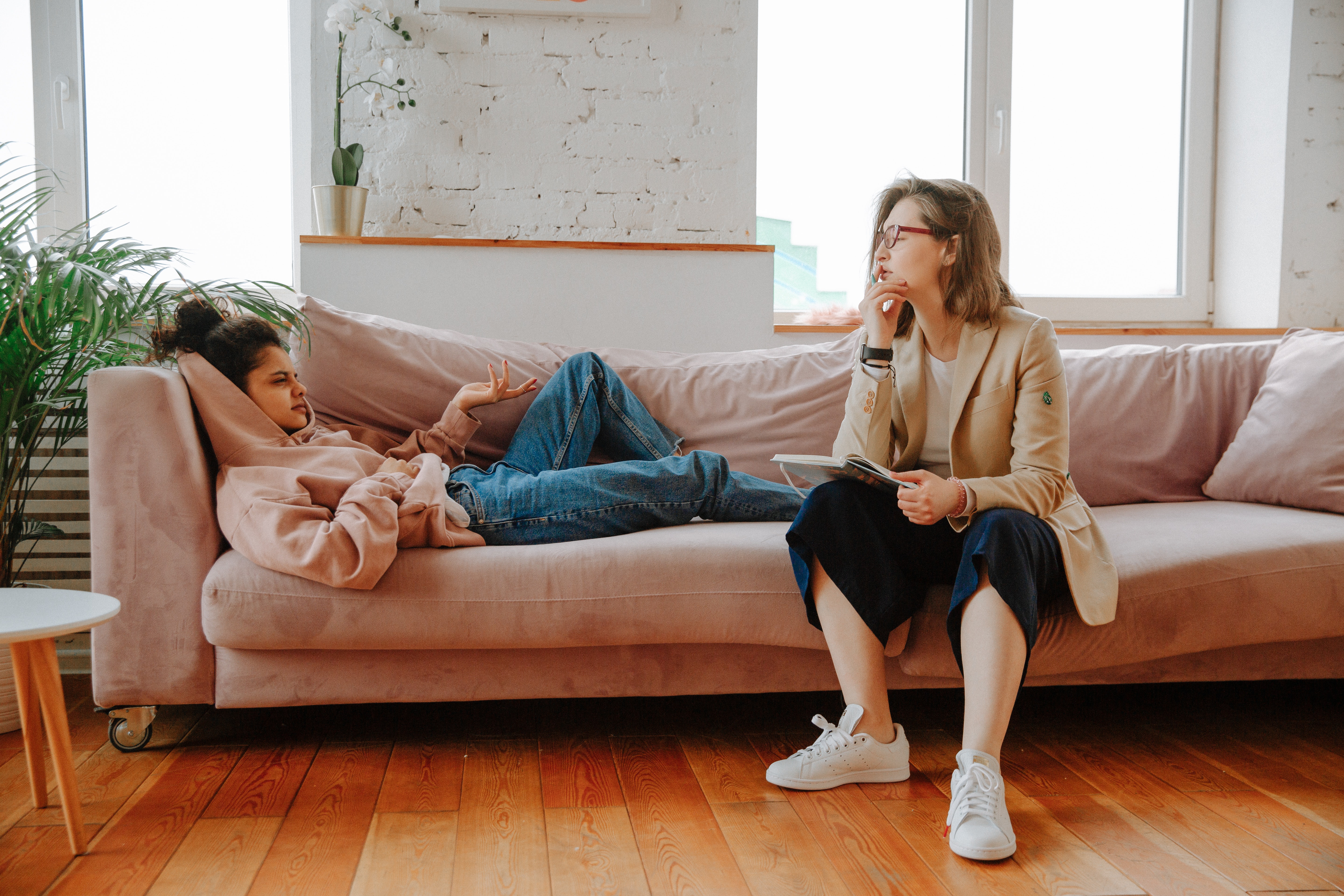On August 28th, 1995, I did not have a clue how my life was about to flip-turn upside down (if you’re hearing The Fresh Prince, I see you) when my parents brought me to a local hospital for a “routine” surgery to remove a small bump on my back. I was 13 years-old and a star athlete with an active social life when I was informed days later that I had something called cancer. Back then, this word was not part of our daily vocabulary. A grapefruit-sized tumor was found hiding in my ribcage and would mean that life as I knew it was over.

I wouldn’t be writing this post had I not survived after nearly a year and a half of treatment at St. Jude Children’s Research Hospital. After the rollercoaster of treatment ended and my hair started to grow back, I thought I could get back to “normal,” and put cancer behind me. As hard as I tried to move on and fit in with classmates at my new high school, I was not the same person I was before treatment. I had just gone through a very traumatic experience. No one prepared me for the ways that cancer would affect my mental health. Though I had always been supported by family and friends, I felt like no one understood what I was going through.
When we condition someone to “get well soon,” and fight through their treatment, it can feel like a total mindf*ck when you lack the support to do so.
So without further ado, here are some ways you or a loved one can feel less alone to heal from a cancer diagnosis:
It’s okay to not be okay.
I wish I knew this sooner, and expressed how dark my world had gotten to people in my life. Instead, I plotted my suicide months after treatment ended. I could not bear to tell my parents — who had given up everything to care for me — my siblings, or close friends how broken I felt. I did not see any light at the end of a tunnel. Thankfully, I was able to work through the depression and suicidal thoughts and come out on the other side. It was not until two years ago, decades after my darkest days had passed, that I learned that chemotherapy drugs can alter your brain chemistry. If not for a fellow St. Jude patient sharing this in a brave post online, I might not have ever admitted this to anyone. But it’s important that we share our struggles (when we feel comfortable to) so you can not only find support, but help someone on their own journey. If you are ever feeling this low, please know you have someone to talk to. You can always DM me or call the Suicide hotline (1–800–273–8255).
“There is a crack, a crack in everything. That’s how the light gets in.” — Leonard Cohen, in “Anthem”
Therapy > Numbing Pain
I spent years suppressing my emotions, and numbing my pain with copious amounts of alcohol (as any rebellious high school or college student might do), and generally did nothing to address my deep-rooted trauma. I was encouraged to see a therapist in the early days of my recovery, but never found a good fit. Or maybe I wasn’t ready. The same went for support groups — they just weren’t my jam (and truthfully still aren’t). I recall my mom giving me journals to express myself but I didn’t know what to write and I feared that someone would find it and expose all my shameful secrets.
As a “survivor,” I was conditioned to be resilient and a beacon of hope for so many. Admitting that I was still struggling would blow up that façade.
A wise man (Frederick Dodson) once said, “an emotion does not cause pain. Resistance or suppression of emotion causes pain.” This could not have been more true for me. I’m telling you: I would take back the thousands of dollars I wasted on booze and other things to run from my past and invest in therapy if I could do it all over again. In recent years, I’ve discovered the wonders of sobriety, art therapy, somatic breathwork, and journaling prompts. Many types of therapy are offered for free, through organizations like Twist Out Cancer, Gilda’s Club, and The Isolation Journals. There are different strokes for different folks! Please do yourself a favor and seek therapy sooner than later to work through your pain before it consumes you down the road.
Find Your Tribe
Unfortunately, I did not know anyone who had gone through cancer while I was in treatment. Of course there were other children at St. Jude, but not many teenagers I could connect with. Back then, there weren’t state of the art housing facilities and teen rooms — OR cell phones and The Internet. Which means no emails, texting, CaringBridge posts or social media. (Can you even imagine?! I was, to be blunt, isolated AF. After treatment ended, while in college, I was introduced to the man, the myth, the legend: Jonny Imerman. Back then, he was just starting an organization to connect cancer patients, survivors, and caregivers with 1:1 personalized matching, called Imerman Angels. I enthusiastically agreed to mentor patients with Ewing’s Sarcoma.
The heartbreaking reality is that because my cancer is so rare and fatal, I have not met anyone who has survived it. In recent years, my foodie friends introduced me to Fatima Ali, of Top Chef fame, as she also had Ewing’s Sarcoma. When the disease took her life last January, it hit me like a ton of bricks. Fatima’s words — shared posthumously — in Bon Appetit inspired me to leave my (dream) job at St. Jude and create buddhi, a digital wellness companion for cancer thrivers, so no one else has to go through this journey alone.
“It’s funny, isn’t it? When we think we have all the time in the world to live, we forget to indulge in the experiences of living. When that choice is yanked away from us, that’s when we scramble to feel.” — Fatima Ali
I can only hope that by sharing my experience, it will help others feel less alone so they can find support to heal. I would love to know about your experience, if you’re open to sharing. You can DM me anytime (@mskathleenbrown) or join a discussion on buddhi (and use an anonymous screen name, if you’d like). Here’s to more light than darkness in your life, bud.
Kathleen Brown is the Founder + CEO of buddhi, a digital wellness companion for adults in cancer treatment and recovery, and the people who love them. As a cancer survivor who has spent the past 25 years experiencing “the struggle” post-diagnosis, Kathleen is determined to bridge the gap between social support and healing for the millions of others coping with this reality. For more information, visit http://hibuddhi.com.


